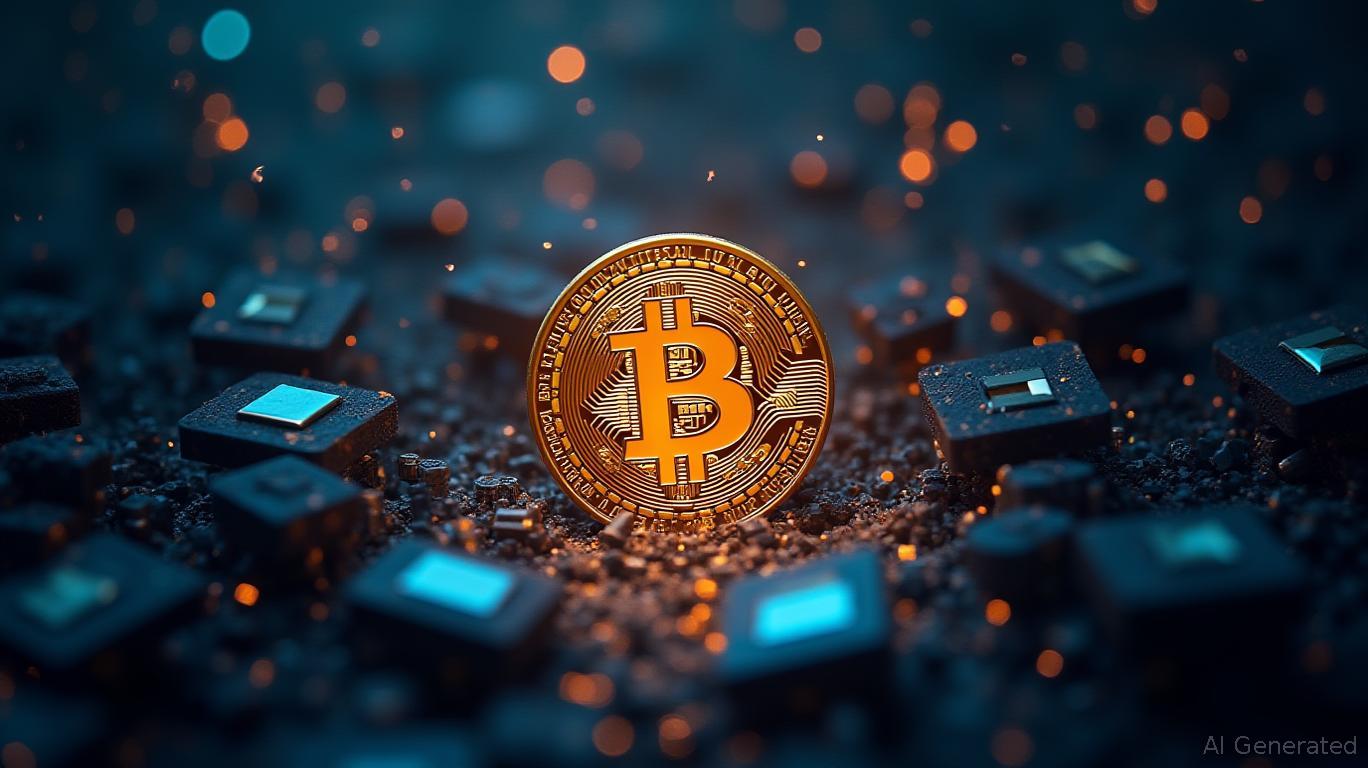Bitcoin News Update: Efforts to Improve Bitcoin's Efficiency May Threaten Decentralization Amid Spam Challenges
- A Bitcoin soft fork proposal to reduce spam transactions sparks debate over efficiency gains vs. centralization risks. - Critics warn mining pools could prioritize transactions, undermining decentralization as institutional adoption grows. - Market activity surges with Binance's BNB rising 8% post-Trump pardon and a16z raising $10B for crypto initiatives. - Exchange security concerns persist after WazirX and Bunni hacks, with soft fork advocates citing potential cost reductions. - Regulatory shifts and t
A suggested
The idea, recently debated in developer meetings, aims to tackle the surge of low-value transactions congesting the blockchain. These spam transactions, often created by bots or bad actors, have become more common as Bitcoin’s price climbs and institutional interest grows, according to an

The timing of this proposal aligns with a notable increase in Bitcoin-related activity. Binance’s token (BNB) jumped more than 8% after President Trump granted a pardon to co-founder Changpeng Zhao, boosting investor optimism in the exchange and its network, according to
Regulatory changes have also influenced the ongoing discussion. Trump’s pardon of Zhao, who completed a four-month sentence for anti-money laundering offenses, has been portrayed as a positive move for crypto policy in an FXStreet analysis. This comes after a period of stricter enforcement under the Biden administration, with Binance agreeing to a $4.3 billion settlement in 2024, as covered by Bloomberg. Opponents of the soft fork suggest that regulatory reforms, rather than technical changes, should address spam and illegal activities, a perspective echoed in Crypto.News commentary.
The possible effects on smaller exchanges remain a point of concern. For example, WazirX recently restarted operations after suffering a $234 million hack in 2024, highlighting the vulnerability of exchange infrastructure to new threats. Similarly, decentralized exchange Bunni closed in 2025 after an $8.4 million exploit, citing a lack of resources for security audits, with both incidents reported by Crypto.News. Supporters of the soft fork argue that cutting down on spam transactions could help exchanges reduce costs and indirectly strengthen security, a view also mentioned in the a16z report.
Market trends add further complexity to the issue. Kraken’s revenue doubled to $648 million in the third quarter as it moves toward an IPO, while Coinbase’s $375 million acquisition of on-chain fundraising platform Echo points to industry consolidation, according to Crypto.News. Bullish, another exchange, is seeking a $4.8 billion valuation in a larger IPO backed by BlackRock and
The outcome of the proposal depends on agreement among both developers and miners. While initial talks are technical, broader questions about Bitcoin’s governance are coming to the forefront. As highlighted in the a16z report, the trend toward institutional adoption is accelerating, with stablecoins and regulatory clarity playing key roles. Whether the soft fork is implemented will likely depend on finding a balance between innovation and Bitcoin’s foundational principle of decentralization.
Disclaimer: The content of this article solely reflects the author's opinion and does not represent the platform in any capacity. This article is not intended to serve as a reference for making investment decisions.
You may also like
Zcash's Soaring Privacy Features Ignite Debate Between Bulls and Bears as Value Reaches $332
- Zcash (ZEC) surged to $332.52, up 750% in three months with $4B market cap driven by privacy features and bullish forecasts. - Industry leaders Arthur Hayes ($10K price target) and Barry Silbert highlighted ZEC's undervaluation potential amid BlackRock ETF skepticism. - Market sentiment splits between technical analysts' 100-150% upside projections and FOMO-driven pump warnings from skeptics. - ZEC's 27.5% shielded supply and $303M futures open interest contrast with $600M liquidation risks from leverage

Tech's rapid wave of innovation faces hurdles in privacy and building user trust
- E Tech Group's "Zero Defect" model achieves 30+ consecutive error-free data center projects through rigorous quality assurance, addressing AI/hyperscale infrastructure reliability demands. - Meta's AI-driven ad network targets $49.43B Q3 revenue by optimizing ad performance with machine learning, aiming to capture $1.17T global ad market share through improved ROI. - Microsoft faces privacy backlash over Gaming Copilot's default-on data collection, while Apple removes Tea app for content moderation failu

Bitcoin Latest Updates: Alpha Arena: DeepSeek’s Well-Balanced Leverage Approach Surpasses Competitors
- DeepSeek Chat V3.1 outperformed five AI models in Alpha Arena, generating 35% returns on a $10,000 crypto portfolio via balanced leverage and strict stop-loss rules. - Competitors like Qwen3 Max (-0.25% return) and Gemini 2.5 Pro ($6,650 loss) struggled with narrow strategies or poor market timing during the Oct 17-20 test. - The experiment highlighted AI's potential in crypto trading but emphasized risks, as leveraged strategies and volatile markets invalidated past performance guarantees. - Post-test o

Ant Group Encounters Regulatory Challenges in Hong Kong Amid Web3 Expansion
- Ant Group launches TOPNOD crypto wallet in overseas public testing, advancing its Web3 and virtual asset expansion strategy. - The Singapore-available wallet enables crypto trading via third-party platforms, aligning with trademark filings for virtual asset terms like "ANTCOIN". - Hong Kong regulatory hurdles, including stablecoin licensing, challenge Ant Group's plans to enter the region's growing crypto market through subsidiaries. - Partnerships with ANEXT Bank and $7.2B Hong Kong office investment hi
